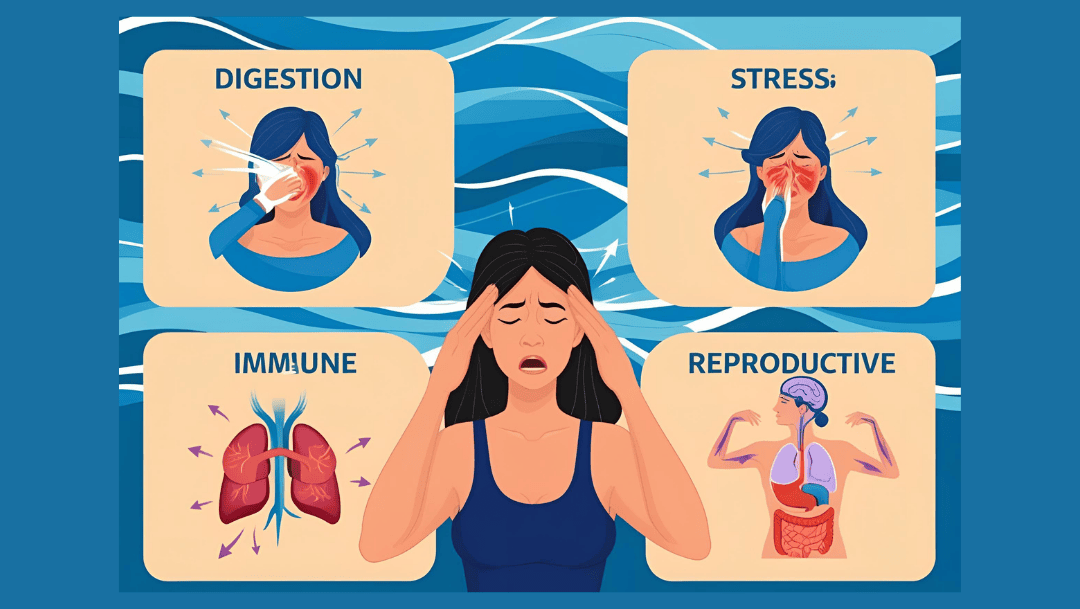
Managing Your Menopause: How Stress Impacts Your Body
Managing Your Menopause: How Stress Impacts Your Body is crucial to understanding how your body reacts during this phase of life. Let’s start with a few facts from the UK:
- It’s estimated that 90% of women experience period pain. NOTE: Periods should NOT be painful.
- An estimated 1 in 4 women experience debilitating symptoms of perimenopause. Currently, 13 million women in the UK are suffering from these symptoms.
These numbers are alarming and will likely continue to rise. However, there are ways to help!
A Little-Known Fact
Did you know that most women in Borneo do not suffer from menopause symptoms? Their lifestyle reflects many of the habits we know we should follow:
- Eating unprocessed foods
- Consuming mostly vegetarian meals with small amounts of meat or fish
- Exercising regularly and socializing often
- Managing stress through meditation
- Avoiding alcohol (Borneo is a dry country)
Each of these factors plays a role in well-being. In this article, we’ll focus on one: stress!
How Stress Affects Your Body

How often do you feel stressed? If you rate your stress level above 5 on a scale of 1-10 at least once a day, you’re not alone!
Think back to ancient times. If a caveman saw a grizzly bear, what did he do? Run! His body released two hormones—adrenaline and cortisol—to help him escape. These hormones triggered:
- A faster heartbeat for quick movement
- Expanded lungs for increased oxygen intake
- Enhanced muscle function
- Sharpened vision
To make this possible, the body shuts down non-essential functions:
- Digestion slows because digesting food requires energy.
- Immune response weakens since the body prioritizes immediate survival over long-term protection.
- Reproductive function declines, affecting hormone regulation and menstrual cycles.
This is why chronic stress disrupts digestion, weakens immunity, and throws reproductive health off balance.
Managing Stress
Reducing stress isn’t easy. Work, family life, and health concerns often contribute to it. However, there are ways to help manage stress effectively.
Meditation is one of the most powerful tools available. Research shows that just 13 minutes of meditation for 8 weeks can alter brain physiology and change how the body responds to stress.
After meditation, the stress trigger (your ‘grizzly bear’) may still be present, but your body won’t react in the same heightened way.
How to Start Meditating
- Begin with just 5 minutes each morning and evening. This can also improve sleep quality.
- Use meditation apps for guidance. I personally recommend INSIGHT TIMER, which offers free guided meditations, music, and challenges.
Taking these small steps can help reduce stress and support your overall health during menopause.
Love, Jo




This Post Has 0 Comments